Main article: Anne Hutchinson
The person most focal to the controversy, Anne Hutchinson (1591–1643), was the daughter of the Reverend Francis Marbury, a school teacher and Anglican clergyman in England with strong Puritan leanings. She was deeply imbued with religious thought as a youngster, but as a young woman had come to mistrust theChurch of England ministers who did not seem to act according to their principles.[9] Her religious beliefs were leaning toward atheism when she heard the voice of God, and "at last he let me see how I did oppose Jesus Christ... and how I did turne in upon a Covenant of works...; from which time the Lord did discover to me all sorts of Ministers, and how they taught, and to know what voyce I heard..."[10] From this point forward, this inner voice became the source of Hutchinson's guidance.[10]
Hutchinson became a follower of John Cotton, who preached at St. Botolph's Church in Boston, Lincolnshire, about 21 miles (34 km) from her home town ofAlford in eastern England.[10] It was likely Cotton who taught Hutchinson to question the legal preaching of most early 17th-century English clergymen. He may have also taught her that only "those elected by God" had the Holy Spirit dwelling within them.[10] As preacher and layperson, Cotton and Hutchinson shared the message to others that salvation could not be earned by acting morally. On this topic Cotton wrote, "And many whose spiritual estates were not so safely layed, yet were hereby helped and awakened to discover their sandy foundations, and to seek for better establishment in Christ".[10]
Not long after her arrival in Boston, Hutchinson began inviting women to her house to discuss recent sermons and other religious matters, and eventually these became large gatherings, twice a week, of 60 or more people.[11] The faithful gathered at theseconventicles not only to discuss sermons and listen to Hutchinson offer her spiritual explanations and elaborations, but to criticize members of the colony's preparationist ministers as well.[12] Hutchinson began to give her own views on religion, espousing that "an intuition of the Spirit", and not outward behavior, provided the only justification that one had been elected by God.[12] Often her theological views differed markedly from those of most of the colony's Puritan ministers. Hutchinson's following soon included Henry Vane, the young Governor of the colony, along with merchants and craftsmen who were attracted to the idea that one's outward behavior did not necessarily affect one's salvation.[12]Historian Emery Battis wrote, "Gifted with a magnetism which is imparted to few, she had, until the hour of her fall, warm adherents far outnumbering her enemies, and it was only by dint of skillful maneuvering that the authorities were able to loosen her hold on the community."[5]
While Hutchinson adopted Cotton's minority view of divine grace being the only means to salvation, as opposed to any assistance through works, she did share the mainstream view of most Puritans in emphasizing "the need for an inner experience of God's regenerating grace as a mark of election."[10] Beyond this, however, she espoused some views that were more radical, such as devaluing the material world and submerging herself in the Holy Spirit.[1
0n March 22, in 1638, Anne Hutchinson was expelled from the Massachusetts Bay Colony. Three years after arriving in Boston, she found herself the first female defendant in a Massachusetts court. When she held prayer meetings attended by both men and women, the authorities were alarmed; but what really disturbed them was her criticism of the colony's ministers and her assertion that a person could know God's will directly. Put on trial for heresy, she defended herself brilliantly. But her claim to have had a revelation from God sealed her fate. She was banished from the colony. Along with her family and 60 followers, she moved to Rhode Island, and later to New York, where she perished in an Indian raid.

Anne and William Hutchinson and their 15 children were among the 200 passengers who arrived in Boston aboard the Griffenin the fall of 1634. The couple had followed their minister, the Reverend John Cotton, to be part of a new community where they would be able to practice their faith openly.
A successful merchant in England, William Hutchinson had the resources to buy a house in Boston and a 600-acre farm. The Hutchinsons were respected gentry by the standards of early Massachusetts, and they quickly assumed a prominent place in Boston affairs.
But within three years, Anne Hutchinson would stand before a Massachusetts court, charged with heresy and sedition. In 1638 she would be excommunicated from the church and banished from the colony for holding and teaching unorthodox religious views.
Anne's father was an outspoken English clergyman. Sentenced to house arrest for being publicly critical of the established church, he turned his prodigious intellectual energies to educating his children. Anne inherited her father's intellect and strong religious beliefs. With the benefit of his library and his careful tutelage, she received a better education than most men of her day.
At the age of 21 she married and took on the traditional role of housewife and mother. She bore 15 children and learned midwifery, a skill that entitled a woman to special respect and esteem. She also maintained her interest in theology. She and her husband became devoted followers of the Puritan preacher John Cotton. At a time when Puritans could not worship freely in England, they chose to follow the Reverend Cotton when he emigrated to Boston in 1633.
At first Anne received a warm welcome. Bostonians appreciated her skill as a midwife; when she began to hold prayer meetings for women in her home, she seemed the very model of Puritan womanhood. John Cotton later remembered that "[a]t her first coming she was well respected and esteemed. . . . I hear she did much good in our Town, in womans meeting [and] at Childbirth-Travells."
But her prayer meetings soon began to cause concern among the Puritan magistrates. An eloquent speaker, she began to draw large gatherings of women and men. The magistrates believed it highly inappropriate for a woman to instruct men, especially in religious matters. The laws of Massachusetts Bay were based on biblical teachings, and the colony's leaders took seriously Paul's commandment that women be silent in public meetings. But Anne Hutchinson's supporters insisted that her meetings were private gatherings.
The real trouble began when word spread that she was criticizing the teachings of the Puritan ministers. She found the ministers, except for John Cotton, lacking in the spirit of God. Concerned about maintaining order in their new community, the ministers in Boston preached that people must live according to biblical precepts, thus demonstrating good works and upholding the moral order. Anne Hutchinson embraced the idea that salvation came about only when God granted it; she believed that human will and action played no role in salvation.
Her unorthodox views did not end there. She suggested that an individual could know God's will directly, and that some people received revelation directly from God. This threatened the ministers' role as interpreters of the Bible. As Hutchinson's following grew, the magistrates decided that she was a dangerous woman who must be stopped. They charged her with sedition for undermining the authority of the ministers and heresy for expressing religious beliefs at odds with those of the colony's religious leaders.
Her trial was extraordinary. Much of the testimony concerned the "crime" she had committed by daring, as a woman, to speak and teach men in public. Governor John Winthrop condemned her meetings as a "thing not tolerable nor comely in the sight of God, nor fitting for your sex." He conducted much of the initial examination himself.
She boldly answered each of his questions with challenging questions of her own. He responded angrily: "You have rather been a Husband than a Wife and a preacher than a Hearer; and a Magistrate than a subject." Her chief crime was usurping male authority.
Winthrop challenged her authority to speak, and she defended herself in biblical terms. He claimed that she had defamed the ministers by accusing them of preaching a covenant of works and not being able ministers of the New Testament. She retorted, "Prove that I said so," and would acknowledge only using the words of the Apostles.
Anne mounted a skillful defense, but her intelligence and eloquence rankled the magistrates, who resented her lecturing them. Winthrop described her as "a woman of haughty and fierce carriage, a nimble wit and active spirit, a very voluble tongue, more bold than a man." After two days of intense questioning, the magistrates had still not found a way to silence her.
Then Anne Hutchinson essentially convicted herself. She declared that her knowledge of the truth came as direct revelation from God, a heresy in Puritan Massachusetts. The astonished magistrates leapt upon what they considered a false teaching and proclaimed her guilt: "Mrs. Hutchinson, the sentence of the court you hear is that you are banished from out of our jurisdiction as being a woman not fit for our society, and are to be imprisoned till the court shall send you away."
Hutchinson refused to recant and accepted her exile. In the spring of 1638 she and her family left Massachusetts Bay for the more tolerant Providence Plantation founded by Roger Williams. After her husband died, she moved to New Amsterdam. There, in 1643, she and five of her children were killed in an Indian raid. John Winthrop viewed her violent death as a sign of God's final judgment on her blasphemy.
In 1922 a statue of Hutchinson was erected on the grounds of the Massachusetts State House. In 1945 the legislature voted to revoke her banishment. Today Anne Hutchinson is remembered as an advocate of freedom of religion and of women's rights. Although in reality she was neither, she was a brave and principled woman who had the courage to speak her mind in a society that allowed women no public voice.
Sources
American Jezebel: The Uncommon Life of Anne Hutchinson, the Women Who Defied the Puritans, by Eve LaPlante (Harper Collins, 2004).
"Anne Hutchinson: Brief Life of Harvard's 'Midwife,'" by Peter Gomes, Harvard Magazine (November/December, 2002).
Boston Globe, Interview with Eve LaPlante, "Heretic, or Centuries Before her Time?" May 8, 2004.
Governing the Tongue: The Politics of Speech in Early New England, by Jane Kamensky (Oxford University Press, 1997).

http://www.massmoments.org/moment.cfm?mid=88

...in 1638, Anne Hutchinson was expelled from the Massachusetts Bay Colony. Three years after arriving in Boston, she found herself the first female defendant in a Massachusetts court. When she held prayer meetings attended by both men and women, the authorities were alarmed; but what really disturbed them was her criticism of the colony's ministers and her assertion that a person could know God's will directly. Put on trial for heresy, she defended herself brilliantly. But her claim to have had a revelation from God sealed her fate. She was banished from the colony. Along with her family and 60 followers, she moved to Rhode Island, and later to New York, where she perished in an Indian raid.

Anne and William Hutchinson and their 15 children were among the 200 passengers who arrived in Boston aboard the Griffenin the fall of 1634. The couple had followed their minister, the Reverend John Cotton, to be part of a new community where they would be able to practice their faith openly.
A successful merchant in England, William Hutchinson had the resources to buy a house in Boston and a 600-acre farm. The Hutchinsons were respected gentry by the standards of early Massachusetts, and they quickly assumed a prominent place in Boston affairs.
But within three years, Anne Hutchinson would stand before a Massachusetts court, charged with heresy and sedition. In 1638 she would be excommunicated from the church and banished from the colony for holding and teaching unorthodox religious views.
Anne's father was an outspoken English clergyman. Sentenced to house arrest for being publicly critical of the established church, he turned his prodigious intellectual energies to educating his children. Anne inherited her father's intellect and strong religious beliefs. With the benefit of his library and his careful tutelage, she received a better education than most men of her day.
At the age of 21 she married and took on the traditional role of housewife and mother. She bore 15 children and learned midwifery, a skill that entitled a woman to special respect and esteem. She also maintained her interest in theology. She and her husband became devoted followers of the Puritan preacher John Cotton. At a time when Puritans could not worship freely in England, they chose to follow the Reverend Cotton when he emigrated to Boston in 1633.
At first Anne received a warm welcome. Bostonians appreciated her skill as a midwife; when she began to hold prayer meetings for women in her home, she seemed the very model of Puritan womanhood. John Cotton later remembered that "[a]t her first coming she was well respected and esteemed. . . . I hear she did much good in our Town, in womans meeting [and] at Childbirth-Travells."
But her prayer meetings soon began to cause concern among the Puritan magistrates. An eloquent speaker, she began to draw large gatherings of women and men. The magistrates believed it highly inappropriate for a woman to instruct men, especially in religious matters. The laws of Massachusetts Bay were based on biblical teachings, and the colony's leaders took seriously Paul's commandment that women be silent in public meetings. But Anne Hutchinson's supporters insisted that her meetings were private gatherings.
The real trouble began when word spread that she was criticizing the teachings of the Puritan ministers. She found the ministers, except for John Cotton, lacking in the spirit of God. Concerned about maintaining order in their new community, the ministers in Boston preached that people must live according to biblical precepts, thus demonstrating good works and upholding the moral order. Anne Hutchinson embraced the idea that salvation came about only when God granted it; she believed that human will and action played no role in salvation.
Her unorthodox views did not end there. She suggested that an individual could know God's will directly, and that some people received revelation directly from God. This threatened the ministers' role as interpreters of the Bible. As Hutchinson's following grew, the magistrates decided that she was a dangerous woman who must be stopped. They charged her with sedition for undermining the authority of the ministers and heresy for expressing religious beliefs at odds with those of the colony's religious leaders.
Her trial was extraordinary. Much of the testimony concerned the "crime" she had committed by daring, as a woman, to speak and teach men in public. Governor John Winthrop condemned her meetings as a "thing not tolerable nor comely in the sight of God, nor fitting for your sex." He conducted much of the initial examination himself.
She boldly answered each of his questions with challenging questions of her own. He responded angrily: "You have rather been a Husband than a Wife and a preacher than a Hearer; and a Magistrate than a subject." Her chief crime was usurping male authority.
Winthrop challenged her authority to speak, and she defended herself in biblical terms. He claimed that she had defamed the ministers by accusing them of preaching a covenant of works and not being able ministers of the New Testament. She retorted, "Prove that I said so," and would acknowledge only using the words of the Apostles.
Anne mounted a skillful defense, but her intelligence and eloquence rankled the magistrates, who resented her lecturing them. Winthrop described her as "a woman of haughty and fierce carriage, a nimble wit and active spirit, a very voluble tongue, more bold than a man." After two days of intense questioning, the magistrates had still not found a way to silence her.
Then Anne Hutchinson essentially convicted herself. She declared that her knowledge of the truth came as direct revelation from God, a heresy in Puritan Massachusetts. The astonished magistrates leapt upon what they considered a false teaching and proclaimed her guilt: "Mrs. Hutchinson, the sentence of the court you hear is that you are banished from out of our jurisdiction as being a woman not fit for our society, and are to be imprisoned till the court shall send you away."
Hutchinson refused to recant and accepted her exile. In the spring of 1638 she and her family left Massachusetts Bay for the more tolerant Providence Plantation founded by Roger Williams. After her husband died, she moved to New Amsterdam. There, in 1643, she and five of her children were killed in an Indian raid. John Winthrop viewed her violent death as a sign of God's final judgment on her blasphemy.
In 1922 a statue of Hutchinson was erected on the grounds of the Massachusetts State House. In 1945 the legislature voted to revoke her banishment. Today Anne Hutchinson is remembered as an advocate of freedom of religion and of women's rights. Although in reality she was neither, she was a brave and principled woman who had the courage to speak her mind in a society that allowed women no public voice.
Sources
American Jezebel: The Uncommon Life of Anne Hutchinson, the Women Who Defied the Puritans, by Eve LaPlante (Harper Collins, 2004).
"Anne Hutchinson: Brief Life of Harvard's 'Midwife,'" by Peter Gomes, Harvard Magazine (November/December, 2002).
Boston Globe, Interview with Eve LaPlante, "Heretic, or Centuries Before her Time?" May 8, 2004.
Governing the Tongue: The Politics of Speech in Early New England, by Jane Kamensky (Oxford University Press, 1997).

http://www.massmoments.org/moment.cfm?mid=88

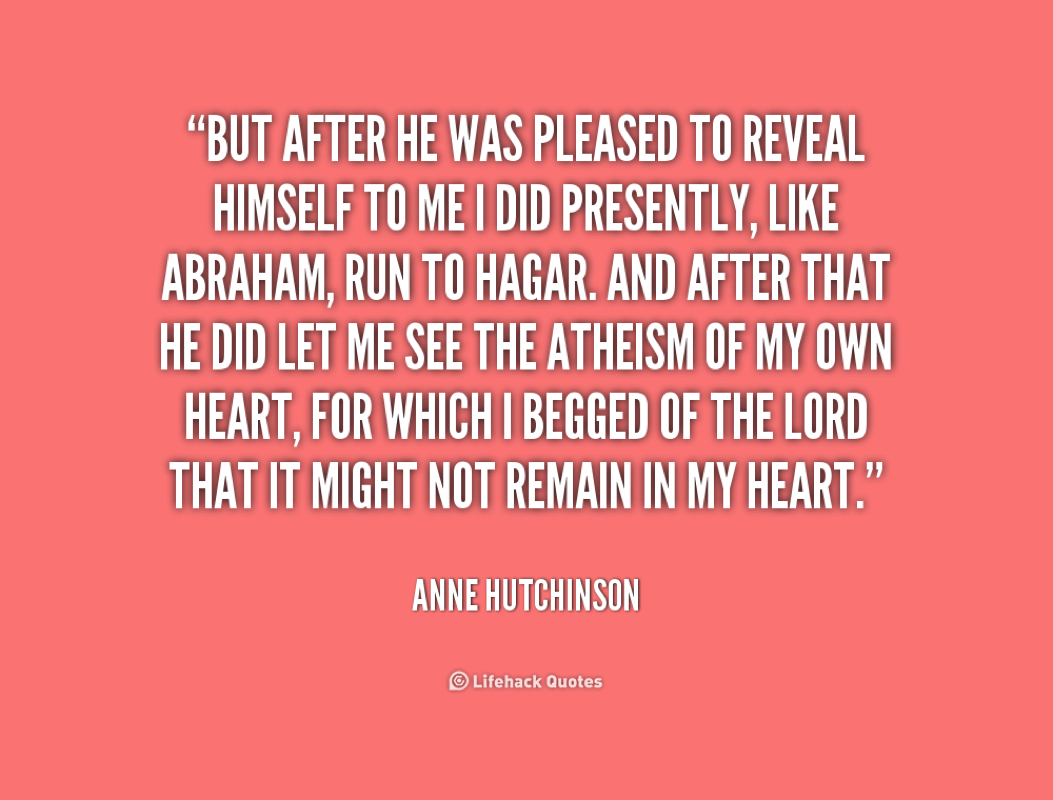
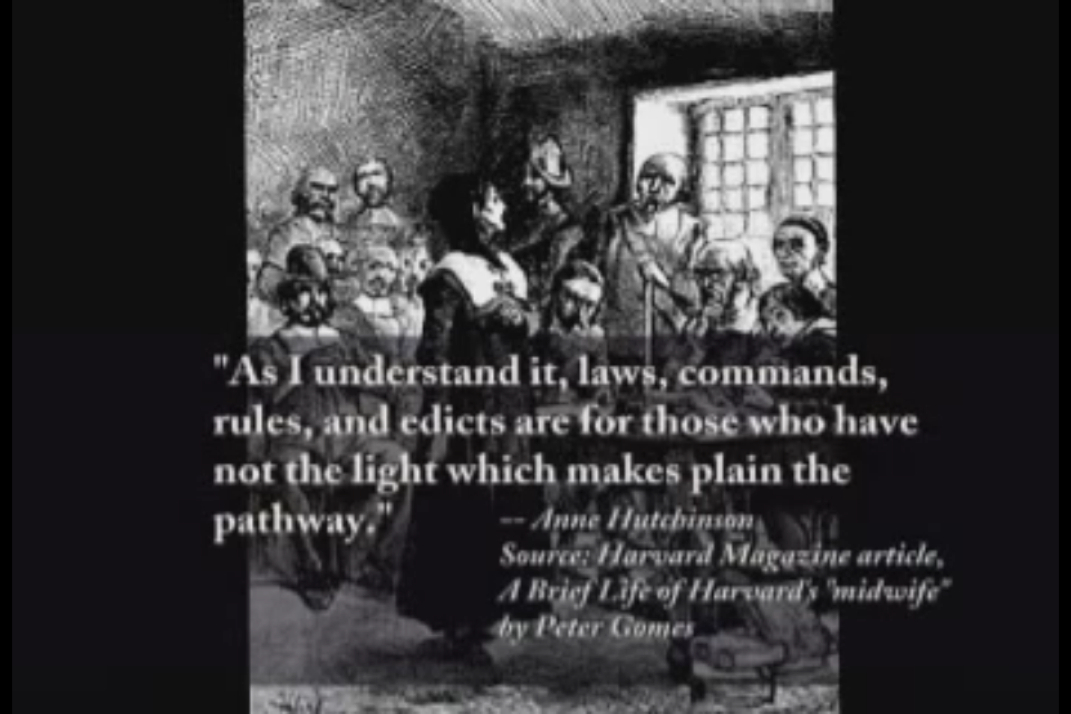
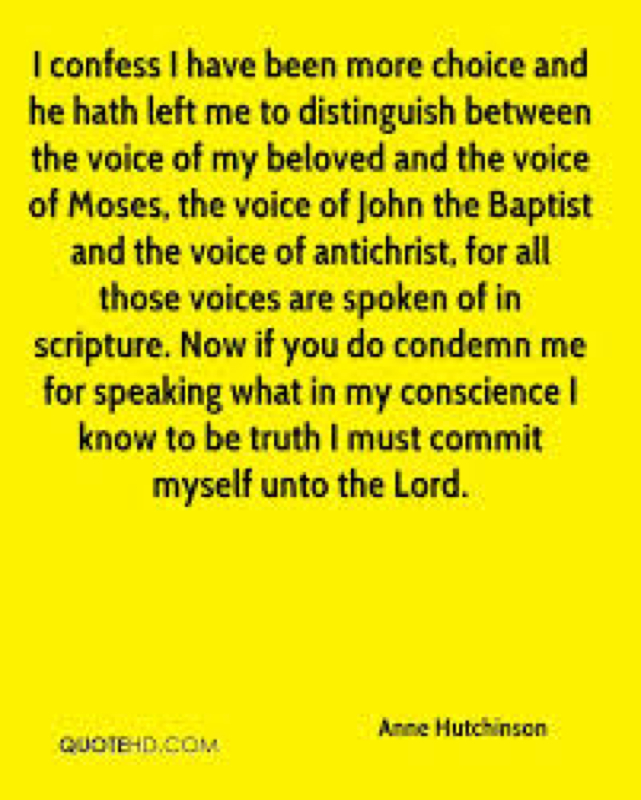
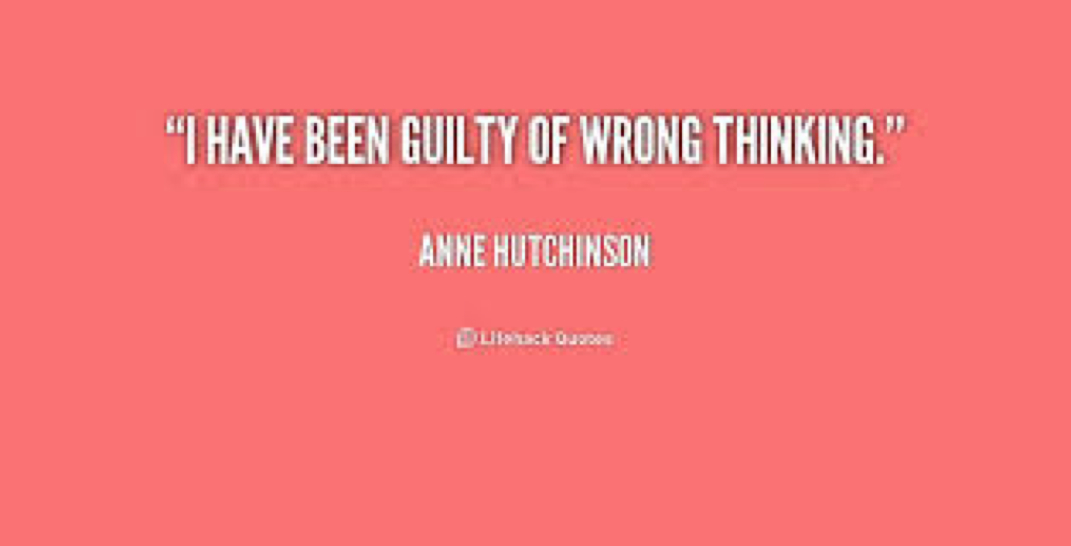
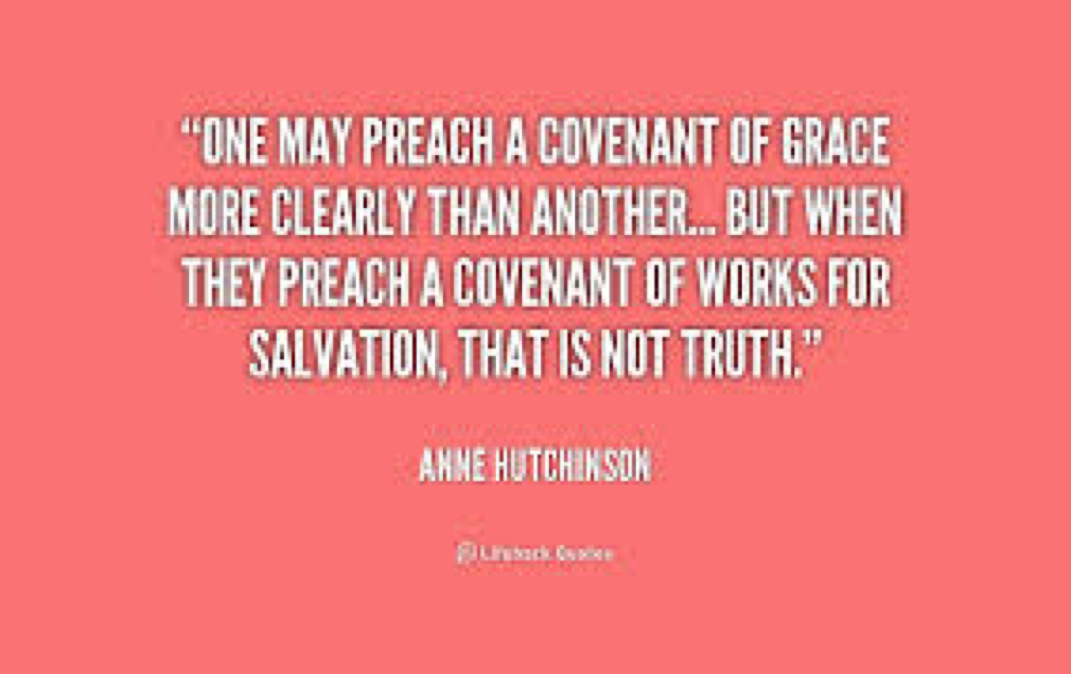
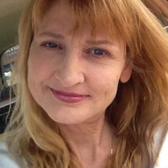


 RSS Feed
RSS Feed

